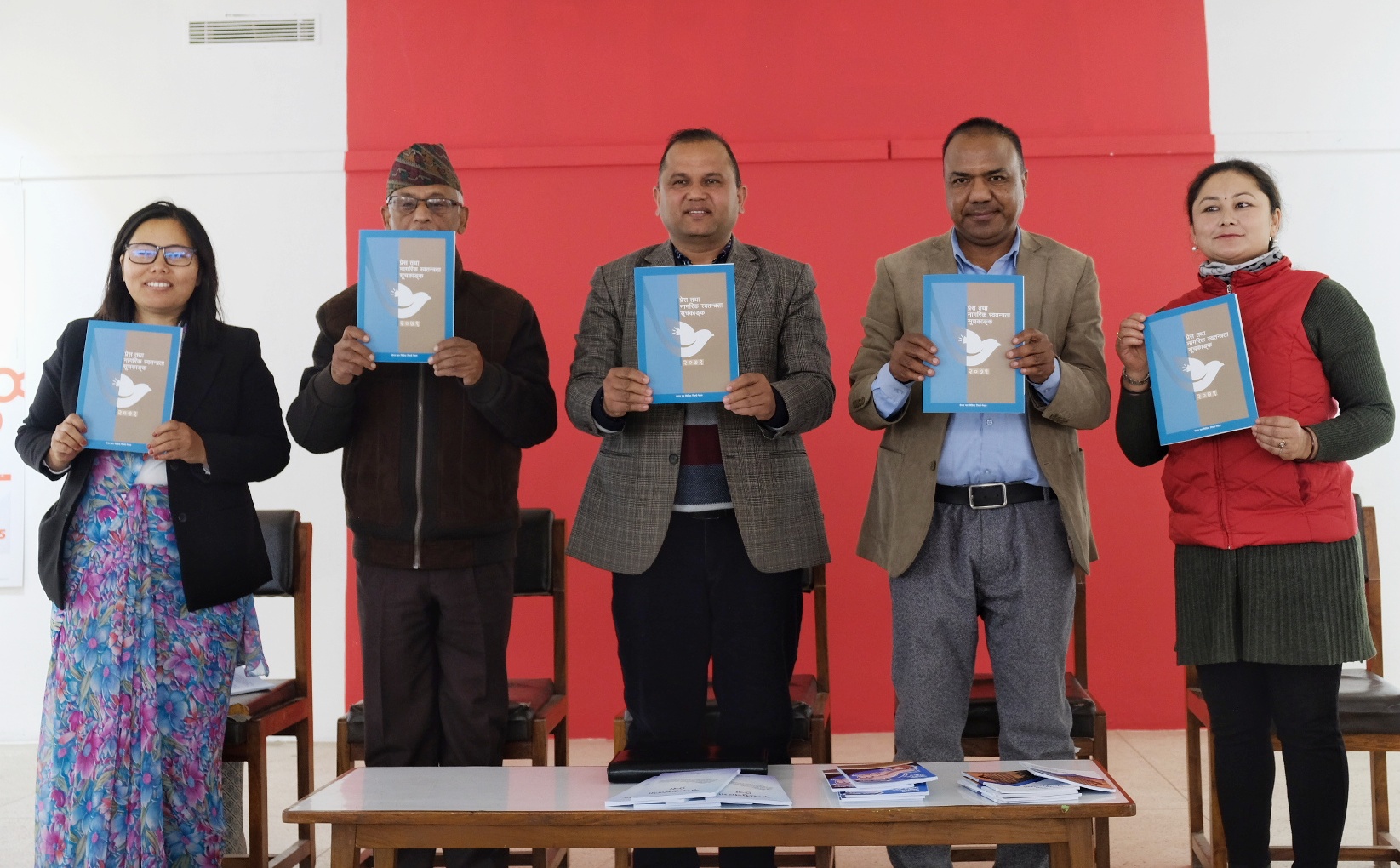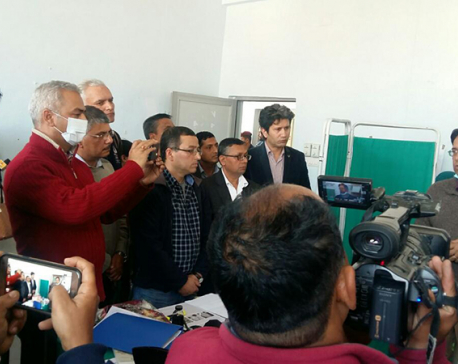
OR
‘State can curtail freedom of press and expression at any time’
Published On: December 30, 2022 02:00 PM NPT By: Republica | @RepublicaNepal

KATHMANDU, Dec 30: A study has shown that after the country adopted federalism, the provisions in the laws and bills related to the media that were introduced at the federal, provincial and local levels, were made to restrict the press and freedom of expression.
In the study report made public by the Center for Media Research Nepal at a program organized on Thursday in Kathmandu, it is mentioned that the three levels of government can disturb the freedom of press and expression at any time due to the provisions mentioned in the laws and bills.
According to the report, 14 policies have been passed at the federal and provincial levels after the country adopted federalism. Media-related laws have also been enacted at the local level. Although a law was made to regulate advertising at the federal level, due to the lack of consensus, the Bill on Media Council, the Bill on Public Service Broadcasting, and the Bill on Information Technology reached parliament but were not passed. Although the draft of the Mass Communication Bill was prepared, it hasn’t been submitted to parliament yet.
Although the Constitution of Nepal 2015 guarantees freedom of press and expression, the report mentions that media-related laws and bills contain provisions that can revoke licenses, ban broadcasting, and revoke registration of media companies. In the same way, the study has shown that provisions such as publishing only with notice, the government can give instructions, impose fines and imprisonment on operators and journalists based on the publication and broadcasting of content. Similarly, the report also mentions that there are provisions to stop privileges of media, confiscate devices of journalists, directly appoint and remove journalists from various positions, interfere with media autonomy etc.
In the program, professor of journalism P Kharel said that since the preamble of the constitution mentions full freedom of the press, provisions that are in conflict with the constitution should be removed. He gave the example of how the government runs the media abroad as well and expressed the opinion that the government should run the media as the media in Nepal is divided and journalists are politically affiliated.
Chairman of Press Council Nepal, Balkrishna Basnet said that the government has not given priority to the press. He also said that the council protects the freedom of press. He mentioned that there is a tendency to control the press in Nepal.
Meanwhile, Press and Civil Freedom Guidelines 2079BS show that there is little interference from the state in the freedom of speech and press freedom, social organizations and social workers. It is also mentioned in the press and civil liberties index that the central government seems to be a bit more lenient toward social organizations than the media.
During the program, a study on Nepali media's coverage of Nepali migrant workers during the COVID-19 pandemic was also released. The study showed that Nepali media prioritized coverage of issues related to the migrant workers. Similarly, the media was positive about migrant workers while there was a lot of negative news about the role of the government.
You May Like This

China limits online media to publish news sourced from social media
China’s internet regulator will launch a crackdown on the reporting of news gathered from social media, as part of what... Read More...

Editors of media houses express solidarity with Dr KC
KATHMANDU, Dec 1: The editors of different media houses have expressed solidarity with Dr Govinda KC on Thursday. ... Read More...

Call to scrap Online Media Guidelines
KATHMANDU, June 22: Various stakeholders have demanded not to enforce the government-brought Online Media Operation Guidelines-2073 BS as it is. Read More...






Just In
- Challenges Confronting the New Coalition
- NRB introduces cautiously flexible measures to address ongoing slowdown in various economic sectors
- Forced Covid-19 cremations: is it too late for redemption?
- NRB to provide collateral-free loans to foreign employment seekers
- NEB to publish Grade 12 results next week
- Body handover begins; Relatives remain dissatisfied with insurance, compensation amount
- NC defers its plan to join Koshi govt
- NRB to review microfinance loan interest rate











Leave A Comment